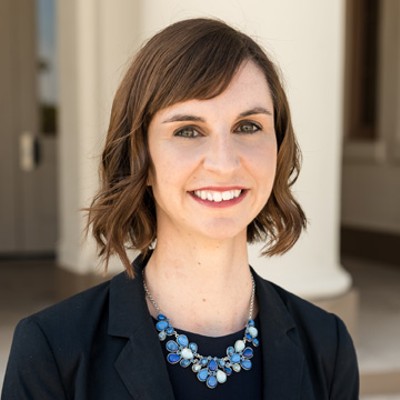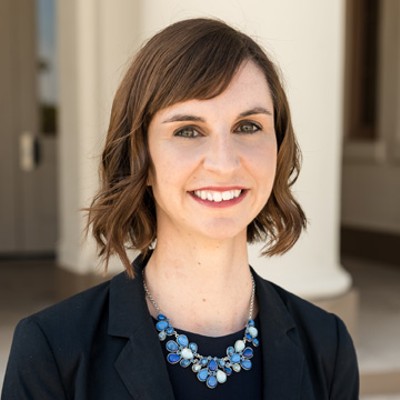Friday, February 10, 2017
Countries That Embraced Vouchers Made the Wrong School Choice
Remember that statewide vote Arizona held on vouchers? No? I didn't think so, because no such vote ever took place. There's a reason for that. Every time voters in other states have been asked the question, they've voted against vouchers. Our Republican-led legislature created our two voucher-like programs on its own. The first program was the tax credit for donating to a School Tuition Organization, which then gives out money to pay for private school tuition. The more recent was the vouchers-on-steroids program, called Empowerment Scholarship Accounts in Arizona but usually referred to as Education Savings Accounts. Bit by bit, year by year, the lege has added more students to the ESA program. This year they're fast-tracking a bill that would make the vouchers available to every student in the state.
Remember the evidence showing that vouchers improve student achievement? No? I didn't think so, since most studies have concluded there is little measurable difference between the achievement of similar students in district schools, charter schools or private schools. And on a country-to-country comparison, voucher programs appear to have harmed the overall quality of education.
The most glaring difference between the public education and voucher models of education is a comparison of Finland and Sweden. In the 1970s, Finland put together a comprehensive program to improve its public education system. Today, Finland has the best scores on international tests in Europe, scores that rival Asian countries which get the most attention for their high scores. In the 1990s, Sweden began a voucher system. Its scores on the international tests have fallen significantly since then.
That example doesn't prove anything in itself, but it's part of a trend pointed out in a recent article in U.S. News & World Report, Worldwide, School Choice Hasn’t Improved Performance.
A What-Finland-Did-To-Improve-Education Bonus Feature: Entire books have been written about the Finnish way of education. Here are some highlights.
Students don't take standardized tests until they're finishing high school (yet they score extremely high on the international tests. Go figure). Teachers are mainly left alone to teach their classes, without lengthy common curriculum requirements and mind-numbing rubrics. Students don't begin formal reading instruction until they're seven years old. Elementary students have what most U.S. schools would consider a ridiculous amount of recess time. And teachers? Finland turns away many more applicants to its teaching programs than it accepts, so it ends up with teachers who are among the country's top college graduates. Those accepted into the program receive a few years of free teacher education—with a living stipend so they don't need to take part time jobs or loans—which includes lots of time for individual research into educational theory and practice as well as a great deal of teaching experience under the guidance of skilled mentors. Finland does have a few private schools—not many, but a few. They're free, funded by the government. Most are religious. They have the same admission standards and the services as the public schools. They're a bit like more carefully monitored versions of our charter schools, if we were allowed to fund religious education.
Remember the evidence showing that vouchers improve student achievement? No? I didn't think so, since most studies have concluded there is little measurable difference between the achievement of similar students in district schools, charter schools or private schools. And on a country-to-country comparison, voucher programs appear to have harmed the overall quality of education.
The most glaring difference between the public education and voucher models of education is a comparison of Finland and Sweden. In the 1970s, Finland put together a comprehensive program to improve its public education system. Today, Finland has the best scores on international tests in Europe, scores that rival Asian countries which get the most attention for their high scores. In the 1990s, Sweden began a voucher system. Its scores on the international tests have fallen significantly since then.
That example doesn't prove anything in itself, but it's part of a trend pointed out in a recent article in U.S. News & World Report, Worldwide, School Choice Hasn’t Improved Performance.
Some have argued that competitive incentives induced by school choice will lead to better educational outcomes. However, there is little evidence to support this claim.The article goes on to say that at the same time voucher systems don't help, and often hurt, student achievement, they manage to increase segregation. The same is true of charter schools.
Sweden has had an educational voucher system since 1992, but its achievement levels on international tests have been falling for two decades. Chile has had such a system since 1980, and there is little evidence of improvement in achievement relative to countries at similar levels of income. Cleveland, Milwaukee, and the District of Columbia have issued vouchers to low-income families, but sophisticated evaluations find no difference between achievement in private voucher schools and public schools with similar student populations. Students from low-income families in Louisiana who have used vouchers to shift from public to private schools have experienced striking reductions in achievement gains relative to similar students in public schools.
In England there has been a dramatic shift from schools governed by public councils to academies run by private groups with great autonomy and the ability to select their own students. The results on student achievement show no distinct advantage, and there are similar results for U.S. charter schools based upon careful statistical comparisons.
Where school choice has shown powerful effects around the world is the systematic separation of students by ethnicity, social class and religion.So Arizona wants to adopt a universal voucher system . . . why, exactly? Based on the best academic evidence, it's not to improve the overall quality of student achievement. However, it's a great way to increase social and economic inequality, and that's something our Republican legislators and governor can get behind.
Sweden’s vouchers have increased segregation by social class and immigrant status. Chile’s voucher system has produced one of the most segregated system of schools in the world by family income. In the Netherlands, studies of the school choice system have pointed to school separation of students by ethnicity, immigrant status and family income. A Brookings Institution study found that U.S. charter schools are more segregated racially and socio-economically than public schools in surrounding areas. The Program for International Student Assessment, an important triennial study of international student performance, finds school segregation by social class is associated with school choice.
A What-Finland-Did-To-Improve-Education Bonus Feature: Entire books have been written about the Finnish way of education. Here are some highlights.
Students don't take standardized tests until they're finishing high school (yet they score extremely high on the international tests. Go figure). Teachers are mainly left alone to teach their classes, without lengthy common curriculum requirements and mind-numbing rubrics. Students don't begin formal reading instruction until they're seven years old. Elementary students have what most U.S. schools would consider a ridiculous amount of recess time. And teachers? Finland turns away many more applicants to its teaching programs than it accepts, so it ends up with teachers who are among the country's top college graduates. Those accepted into the program receive a few years of free teacher education—with a living stipend so they don't need to take part time jobs or loans—which includes lots of time for individual research into educational theory and practice as well as a great deal of teaching experience under the guidance of skilled mentors. Finland does have a few private schools—not many, but a few. They're free, funded by the government. Most are religious. They have the same admission standards and the services as the public schools. They're a bit like more carefully monitored versions of our charter schools, if we were allowed to fund religious education.
Tags: Vouchers , School Tuition Organizations , Private school tax credits , Empowerment Scholarship Accounts , School choice















